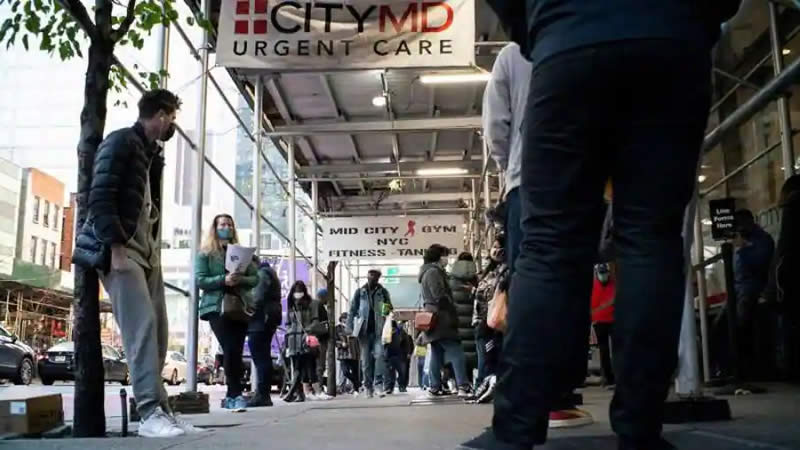The CDC Releases COVID-19 Guidelines For 2021 Holidays – Here’s What You Need To Know

The Centers for Disease Control and Prevention (CDC) has officially released its guidance for the 2021 holiday season, which will be the second season to be affected by the COVID-19 pandemic.
Although Thanksgiving, Hanukkah, Christmas, and other holidays will undoubtedly change, the CDC’s holiday guidelines for 2021 ensure that you can still meet with family with a few safeguards.
According to the CDC, here’s how to keep yourself and your loved ones safe this holiday season:
First And Foremost, Get Vaccinated “Because many generations tend to gather to celebrate holidays, the best way to minimize COVID-19 risk and keep your family and friends safer is to get vaccinated if you’re eligible,” begins the CDC’s 2021 holiday guidance. “Protect those not yet eligible for vaccination, such as young children, by getting yourself and other eligible people around them vaccinated.”
Per the CDC, more than three-quarters of eligible Americans have received at least one dose of one of the three available COVID-19 vaccines, which have been shown to be extremely safe and effective.
The vaccines didn’t arrive in time for last year’s holiday season, but they’re shaping up to be the most essential component in ensuring that this year’s festivities are safe.
Vaccines are important according to health authorities: “If you’re vaccinated, and your family members are vaccinated, those who are eligible,” Anthony Fauci, M.D., the nation’s leading infectious disease expert, recently said on ABC’s This Week, “you can enjoy the holidays.”
Prefer to Celebrate Outdoors, Wear Face Masks When Indoors
The CDC advises that you celebrate outside rather than inside and that you avoid crowded, poorly ventilated areas. Masks are highly recommended if you plan to spend time indoors with people who are not from your household.
And wearing your face mask correctly is still important—the CDC recommends that people cover their mouths and noses when out in public.
“Even those who are fully vaccinated should wear a mask in public indoor settings in communities with substantial to high transmission,” the agency writes.
Masking has been shown to reduce the risk of COVID-19 exposure for both the wearer and the people around them.
“You might choose to wear a mask regardless of the level of transmission if a member of your household has a weakened immune system, is at increased risk for severe disease, or is unvaccinated,” the CDC guidelines state. Children under two years old, however, should not wear face masks.
Travel Safely
As per CDC, if you’re planning to travel during the holiday season, you should do so as safely as possible. “Everyone, even people who are fully vaccinated, is required to wear a mask on public transportation,” the organization notes.
Travel is particularly riskier if you haven’t been immunized. (As a result, the CDC advises everyone who is eligible to get their COVID-19 vaccines as soon as feasible.) You should get checked before your trip, wear a mask, keep as far away from individuals outside of your family as possible, and wash your hands or use hand sanitizer if hand washing isn’t possible, according to the CDC’s travel guidelines for persons who aren’t fully vaccinated. Even if your test is negative, you should get tested for COVID-19 as soon as possible after arriving and self-quarantine for at least a week.
“By working together,” the CDC writes, “we can enjoy safer holidays, travel, and protect our own health as well as the health of our family and friends.”
When In Doubt, Get Yourself Tested
The CDC advises against hosting or attending a gathering if you are unwell or have COVID-like symptoms. Checking for COVID is the best technique to be sure you don’t have it. “Get tested if you have symptoms of COVID-19 or have close contact with someone who has COVID-19,” the CDC recommends. Though breakthrough cases are relatively uncommon, they do occur. As a result, regardless of your vaccination status, you should follow this recommendation.


